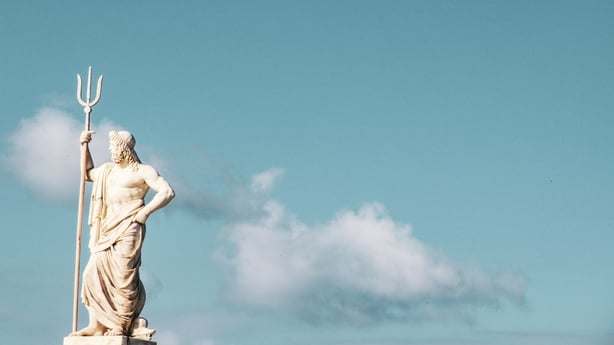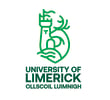Opinion: their day may be long gone, but the myths around the acient gods remind us to reflect and check ourselves
By Sarah Kieran and Fiona Fennell, University of Limerick
Self-awareness is one of the most important traits of successful leaders. The ability to self-reflect and self-check is particularly important when leading organisations through periods of uncertainty and ambiguity. Looking at other leaders' style and behaviour is a good starting point for self-reflection, so why not have a look at the Greek gods?
The gods are often described as an ancient civilisation’s effort to explain the disorder of the universe. Given the chaos society has experienced in 2020, maybe we can learn from a collective of immortals who battle titans and mythical creatures, are plagued with personal flaws and are gifted with super-hero like powers.
Let’s start with Poseidon, God of the Sea. Poseidon was vengeful with an unstable temperament often resulting in seismic events. When angered, he was known to strike out with his trident causing storms and earthquakes for those around him. This calls to mind more mechanistic, power-based forms of leadership where organisations are seen as machines and employees nothing more than the cogs that keep it running. Such leaders typically seek control and can be overly directive.
We need your consent to load this rte-player contentWe use rte-player to manage extra content that can set cookies on your device and collect data about your activity. Please review their details and accept them to load the content.Manage Preferences
From RTÉ Radio 1's The Business, Ciara Conlon from Spirit Leadership and Ian McClean from Flowgroup Change on the challenges for managers in leading people in lockdown
While it is important to manage and monitor progress, uncertain environments such as we are currently experiencing necessitate courage and risk-taking. These are behaviours which are hindered when people feel controlled or believe there may be negative consequences if mistakes are made. Therefore, now is not the time to be overly directive or critical, but to allow people explore and experiment with a range of options until the best way forward is agreed.
In considering the need for freedom to experiment, we can also learn from Hera, Poseidon’s sister. While physically very attractive, she was also quite vindictive and never forgot an injury. Hera once punished a love interest by putting her in charge of Argus, who had one hundred eyes watching her every move. Real creativity and innovation can only thrive in a blame free culture. People who feel watched and nervous of making mistakes cannot be very creative! This is the concept of psychological safety, feeling free to speak one’s mind without risk of blame or sanction.
Poseidon and Hera’s nephew, Apollo, has a lot to teach us here. Often referred to as 'the Healer’, Apollo was the God of Light and Truth. While not afraid of warfare, he was a purifier, able to cleanse those stained with even the blood of their relatives!

For organisations and their employees, purity of thought and conversation is critical during uncertain times. It is now that we need to ‘ask the unaskable’ and ‘question the unquestionable’ but people cannot engage in real discourse if they are concerned about the consequences. While Apollo had a gift of prophecy mortal leaders cannot emulate, we can learn from his gift for honesty and authenticity. A leader who encourages a willingness to share doubts, misgivings and implicit contradictions will create a climate of trust. When it is impossible to plan for a future based on our experiences of the past, leaders can encourage honest and open discourse so their people can create the future for their organisations instead.
This brings us to Proteus, son of Poseidon and God of ‘Elusive Sea Change’. What better description can we have of the times in which we find ourselves? Proteus was versatile, mutable and capable of assuming many forms. This highlights the flexibility and versatility required of leaders today where we continuously need to adapt to different situations.
Proteus reminds us that leaders will always face changing landscapes. While they cannot be expected to have all the answers, they can support and sustain their people who will pull together to find the answers. This is the concept of sustainable leadership where leaders seek to develop rather than deplete their people’s resources. While you may not have the gift of prophecy like Proteus, you can take a ‘protean’ approach by creating a climate where your people feel supported to move forward into the unknown, figuring things out one-step at a time.
Highlighting extremes provides a device through which we can examine and adapt our own style and approach
Leadership theory shows that we often respond with an exaggerated version of ourselves when under stress. For example, generally confident and energetic leaders under stress can overplay this strength and come across as single-minded and aggressive. While the Greek gods had both positive and negative traits that offer exaggerated archetypes of leadership, highlighting extremes provides a device through which we can examine and adapt our own style and approach. Their day may be long gone, but the gods remind us to self-reflect and self-check. After all, forewarned is forearmed.
Dr. Sarah Kieran is a lecturer in Strategic HRM in the Department of Work and Employment at the Kemmy Business School at the University of Limerick. Fiona Fennell is the founder of Think4Purpose and a Masters graduate in Business from the University of Limerick.
The views expressed here are those of the author and do not represent or reflect the views of RTÉ

